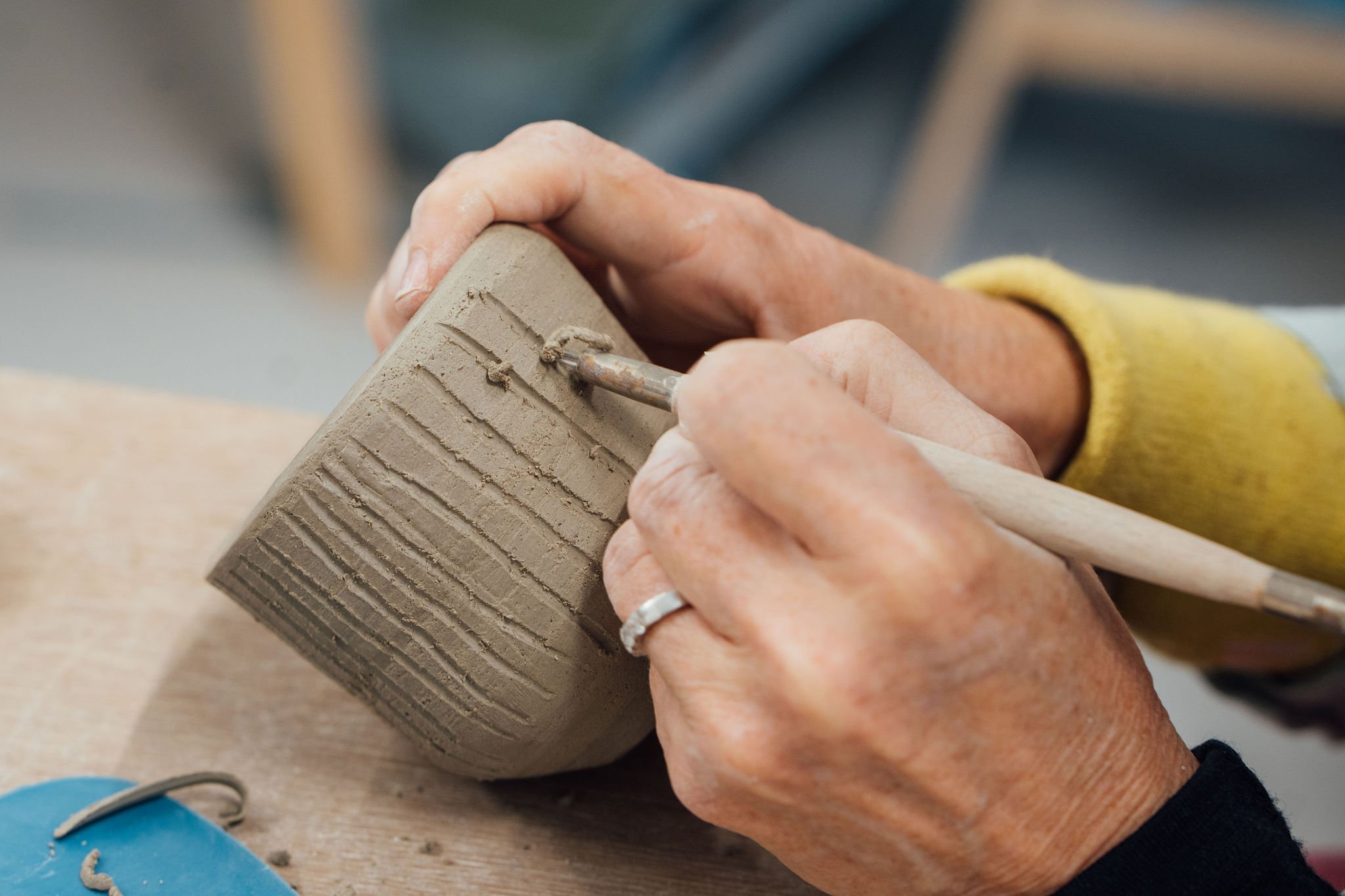Sustainability Strategy 2025
Aiming to encourage consideration for the environment through example, education and studio practice.

Environment
-
Materials
Our clay is sourced from local supplier and is made mainly from the ball-clay found in the clay-pits of Kingsteignton.
Our glazes are carefully considered, reviewed regularly for their environmental impact. -
Green Energy
The Clay Yard uses Good Energy for our supply of electricity to the kilns and wheels. Good Energy uses 100% renewable fuel from British independent suppliers.
-
Location
We are located with a 5 minute walk of the local bus service and within 20 minutes of the national rail network. There is a cycle rack for safe parking of bicycles and a public footpath network within 2 minutes access allowing easy and safe pedestrian access to The Clay Yard.
-
Local Producers
We aim to engage a practice that uses where possible, the clays that are quarried and manufactured in the South West. We hope that this will enable us to reduce our carbon footprint by lessening the use of transport systems to deliver our products to The Clay Yard.
Social
-
Accessible
The Clay Yard premises are at ground-level, providing safe and easy access. We routinely assess our accessibility for those with mobility issues, the hard-of-hearing and those with visual impairments.
We aim to develop an environment which is stress-free and is considerate of all users. We actively engage with care providers to assess and revise our provision to best suit the needs of our users.
-
Ethical
We aim to source sustainable and ethical materials. We avoid toxic chemicals at the studio and aim to provide food-safe glaze components that have minimal impact on the environment.
We harvest the glaze materials from washing tools in order to make a new rainbow glaze.
-
Inclusive
We are constantly reviewing our prices to enable better access to our services. We are routinely reviewing our programme for those who are disadvantaged financially and are seeking funding to offer places for those from deprived areas or who have financially difficult backgrounds.
Where there are unfilled spaces on courses we will offer these to vulnerable individuals.
-
Under-Represented Groups
We aim to implement a programme that provides those who are under-represented to engage with the arts.
This is on-going and will be a key feature for the studio programme going forward in 2025.
Economic
-
Consumerism
We believe that active participation in the art of making improves understanding of process and reduces ill-considered and wasteful consumerism.
We display materials that encourage potters to plan their work and be discerning in their choice of work to keep.
-
Strengthening Workforce
We aim to enable and empower our users with the transferable skills of resilience, creative problem-solving, cooperation and collaboration.
The Clay Yard aims to support school work experience programmes and has a team of volunteers who support the tutors at the studio.
-
Training Programme
We have a training plan in-place that aims to provide developmental opportunities for those aiming to work to support autonomy in studio practice.
-
Employer Partners
We are working with employers to provide team-building, wellbeing and workforce resilience through the corporate pottery programme.
